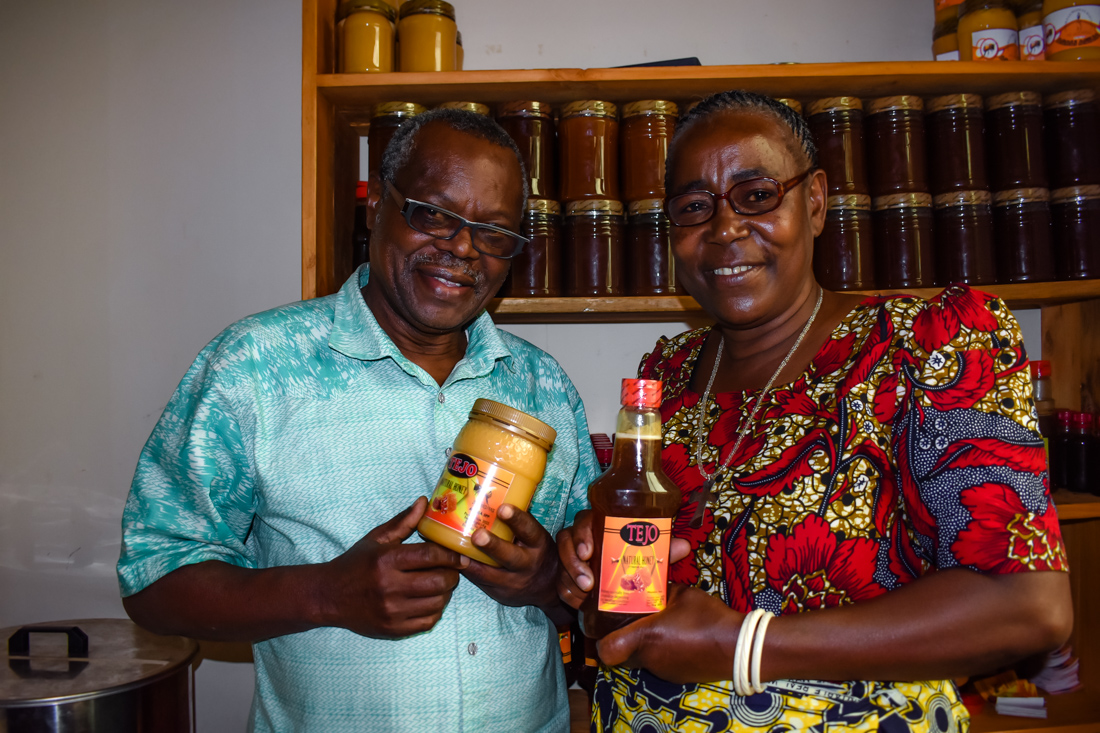Program in Tanzania protects the ecosystem by creating thriving honey industry
Story

Theresia Massao, 69, and her husband worked as foresters for many years. After her husband retired, Massao was selected to help conserve the Kilombero Nature Reserve, an area that was suffering from the aftereffects of wildfires.
It pained Massao to see what had become of the plants, wildlife, and biodiversity of this natural paradise. She and her husband wanted to find a way to conserve the area.
The couple decided to write proposals to encourage people—specifically farmers—to start keeping beehives. Having the beehives at the peripheral of the forest would help keep people away, minimizing the number of fires being started by people’s activity. Soon, they saw a noticeable change.
“Through that process of convincing people to start keeping hives, we managed to reduce forest fires starting in the community by up to 20 per cent in two years,” Massao says. “That was an achievement because in the process of safeguarding their hives, they stopped fire from entering nature.”
Although the beekeeping initiative had a positive impact on the Kilombero Nature Reserve, it left farmers wondering how to sell their honey. In 2014, Massao and her husband began phase two of their project: buying honey from the beekeeping farmers and selling it themselves.
This is how the TEJO Natural Honey Company was born.
But starting a business from scratch isn’t easy, and the couple faced several challenges along the way. They struggled to find the right packaging material, initially using empty glass alcohol bottles. Eventually, they sought help from Cuso International’s entrepreneur program in partnership with Small Industries Development Organization (SIDO).
SIDO advised them against using breakable glass bottles, so they began importing bottles from Nairobi. They soon faced further challenges, including high importation taxes, a requirement for Tanzania Bureau of Standards certification, a problem with the honey crystallizing in cold weather, and a lack of advanced storage.
As they dealt with these many issues, the couple got guidance from Tanzania local enterprise development (TLED), through SIDO, and received more help than they could have imagined.
TLED provided them with capacity building, equipment and business record-keeping training, and helped improve the company’s label. This new, more aesthetically pleasing label, brought in plenty of new business.
The couple also received guidance on their business plan and information about market opportunities. TLED supported the company to attend various national exhibitions, including The Dar es Salaam International Trade Fair in 2018, the Kampala International Exhibitions and, most recently, the Nane Nane Exhibitions Southern Highland Zone, held in the Mbeya Region.
The exhibitions have been a boon to TEJO Natural Honey Company. Its white honey has been especially popular, with Massao’s husband selling 12 jars to a single customer one day.
But the greatest benefit the company has received from TLED is a grant of almost 42 million shillings through the Technology Innovation Fund (TIF), covering 60 per cent of the total project costs.
“The most important thing is really the storage of our honey,” Massao says. “We didn’t have the storage capacity at all before.”
As they’ve grown their business with help from SIDO and TLED, Massao and her husband have managed to help protect their local environment and provide employment opportunities to many people in their community.
Ten years from now, Massao believes TEJO will be a business leader in environmental conservation, with a high number of product in internal and external markets.
“We are also helping others,” she says. “I thank God and I thank everyone who has participated and contributed to TEJO growing.”
Help more young women like Theresia achieve their dreams. Donate today.